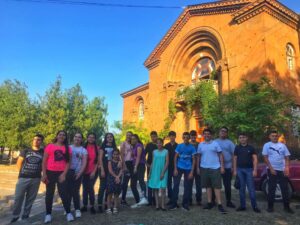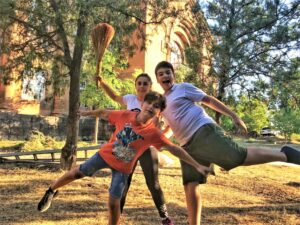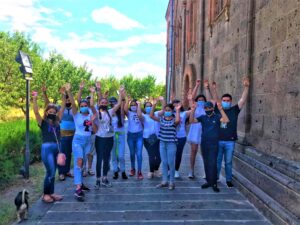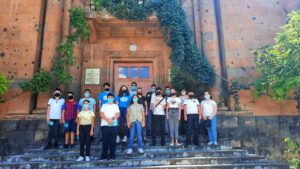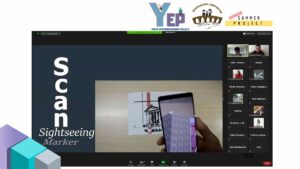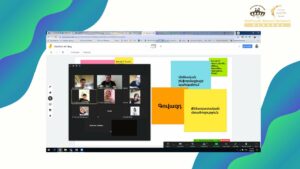
You can do it! The EU4Youth alumni sharing their enthusiasm and experience in disadvantaged communities
Razmik Mnatsakanyan has a vision – “I want to make our society more self-confident,” he says. “I just want everyone to feel that ‘You can do it!’, that there is a solution to every situation. Everything depends on us, because we are the builders of our future.”
The 24-year-old from the village of Oshakan in the mountainous Armenian province of Aragatsotn is certainly not lacking in self-confidence. Founder and president of the Uniting Bridge NGO, working as an intern at the National Assembly of Armenia, and studying for an MA in Economics at American University of Armenia, Razmik is also involved in a wide range of youth activities, including as a Young European Ambassador.
Now, with the support of the EU4Youth Alumni network, he is putting that experience to work, helping young people in his village to access the kind of opportunities from which he benefitted so much. “For us it’s so important to give them new opportunities and to help them participate in different projects, both local and international,” he explains.
The EU4Youth Alumni network brings together beneficiaries from EU youth programmes, aiming to harness their enthusiasm and experience in support of disadvantaged young people back home. The network provides alumni with training in youth work and mentorship support from professional youth workers. Each alumni is then invited to develop a local initiative for disadvantaged youth groups in their respective communities, working with fellow alumni or other local activists. Alumni can also receive funding in the form of small grant for their initiative, as well as organisational and mentorship support.
Razmik went home to Oshakan for his initiative, working with 13-18-year-olds with fewer opportunities. “It is a big responsibility for me, because as a youth worker and a resident of that community you need to put all your efforts to have success, you need to do your best to change your community for the better, to make your community youngsters more active and involved in different projects.”
He started working straight after his kick-off training in Rustavi, in Georgia. At first, his team carried out a series of trainings and activities with the target group, depending on their needs and interests. “We had nature cleaning day in the community, we cleaned up the garden of Cultural palace of Oshakan. We also had some guests, who did trainings for our youth on different topics.”
They also organised a Youth Entrepreneurship Project – a three-day camp with more than 50 participants from all regions of Armenia including the target group from Oshakan, where they learned about entrepreneurship and had the chance to meet young people who had established social enterprises.
And soon the project began to bear fruit, as Razmik proudly reels off the results: “During this period, five of our mentees participated in ‘School of Young Leaders’ organised by UNDP Armenia, two of them participated in the ‘Mardamej’ social-innovative camp organised by the Eurasia Partnership Foundation, one of them took part in the ‘European School Summer Camp’, and two of them were involved in one of the biggest European events ‘Ac.Tival for future 2021’ organised by SAME.”
The project started off with 24 participants, and it seemed that all was going well: “We felt everything was going to be easy, we would work with the youngsters and reach our targets,” he recalls. “But we all faced a lot of disasters during the last year, and it has been a huge challenge.”
First it was COVID-19, and the need to switch activities online, “and for that we had to have internet connection, but there are some youngsters who didn’t have that. And I asked the director of Cultural Palace to give us permission and let them go there and connect to the Wi-Fi from the Palace.” Razmik also did a lot of research on how to make online sessions more inclusive and more effective.
Then there was the war, “and it was a big challenge to collect all of them after war, because there was a big demotivation among them”.
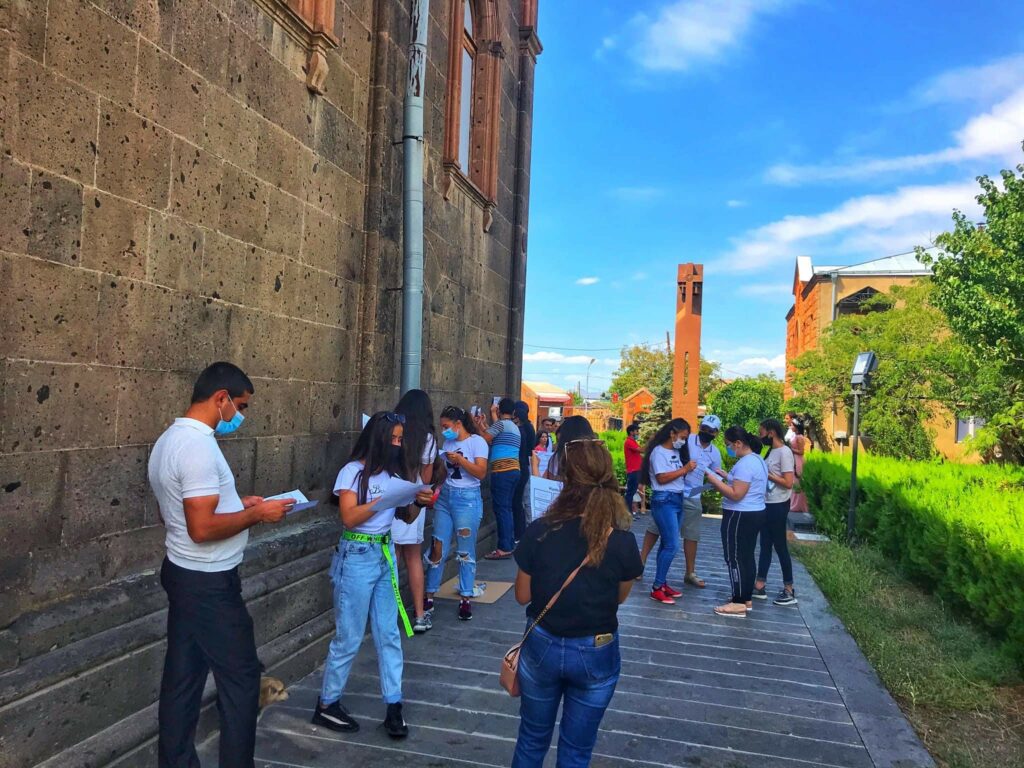
Razmik had to dig deep, with the support of his project mentor Anna – “I couldn’t have done it without her” – and then with the reinforcement of a second member of the Alumni network, Christine, who joined the project after the war.
“Of course, I made mistakes, but at the same time I got very good feedback from my mentor and my friends from the Alumni network, I learned a lot from them, which will, for sure, help me during my future projects.”
Now Razmik and Christine are working to develop new activities for the group. “We’re planning to have different trainings, meetings about professional orientation, a chess competition, football competition and not only. So, cross your fingers and watch this space!”
And while some of the youngsters have moved on to start preparing for their final exams, Razmik is optimistic about the impact of his actions: “People in Oshakan have started hearing about the success of our youngsters, which makes them be more active and motivated for the opportunity to be involved in our activities.”
“You really can do it!” he repeats. “My vision as a youth worker is to make our society more self-confident and more self-educated.” In Oshakan, Razmik and the EU4Youth Alumni have done just that.
MOST READ
SEE ALSO

No, time is not on Russia‘s side
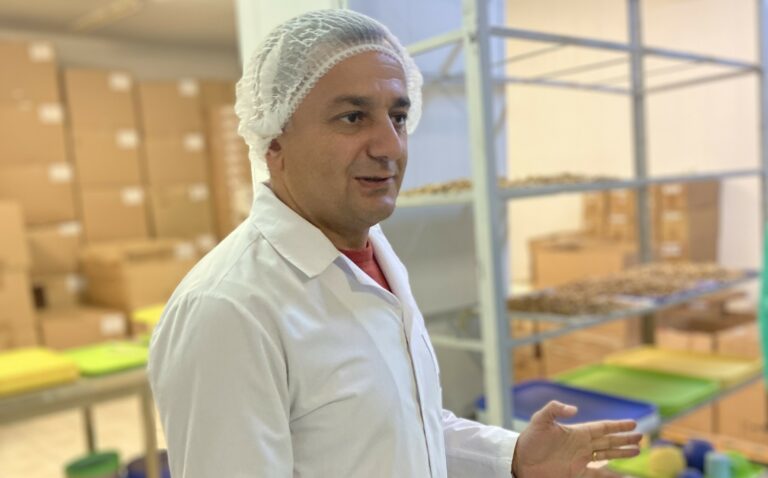
Sweet smell of chocolate
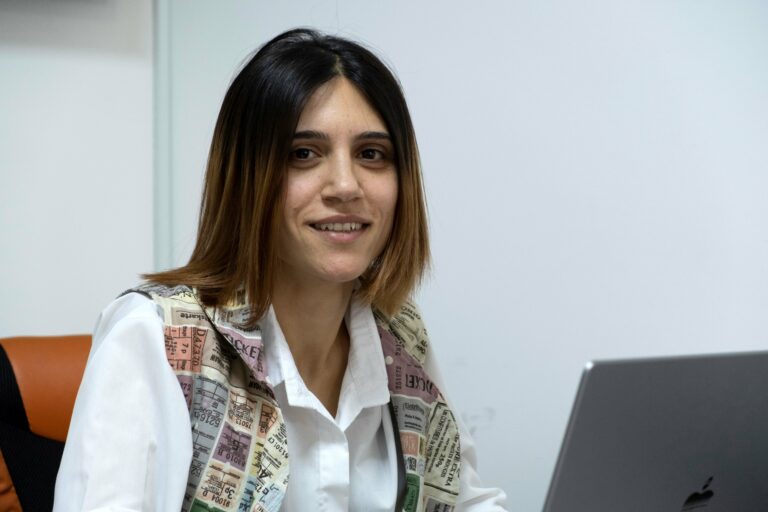
‘Be yourself, and always move forward’: Meri’s advice to young women in business

Be one step ahead of a hacker: check simple cybersecurity tips!
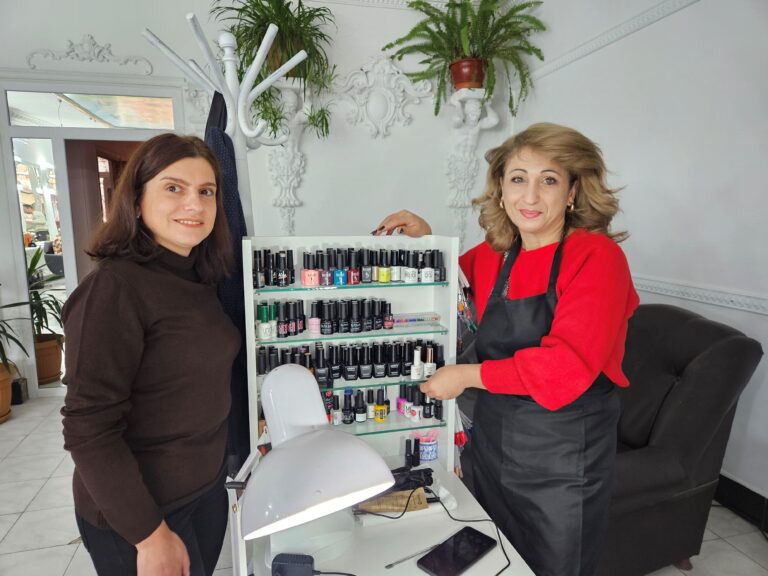
The power of skills: women paving the way to their own business in rural Armenia
More campaign pages:
Interested in the latest news and opportunities?
This website is managed by the EU-funded Regional Communication Programme for the Eastern Neighbourhood ('EU NEIGHBOURS east’), which complements and supports the communication of the Delegations of the European Union in the Eastern partner countries, and works under the guidance of the European Commission’s Directorate-General for Neighbourhood Policy and Enlargement Negotiations, and the European External Action Service. EU NEIGHBOURS east is implemented by a GOPA PACE-led consortium. It is part of the larger Neighbourhood Communication Programme (2020-2024) for the EU's Eastern and Southern Neighbourhood, which also includes 'EU NEIGHBOURS south’ project that runs the EU Neighbours portal.

The information on this site is subject to a Disclaimer and Protection of personal data. © European Union,
